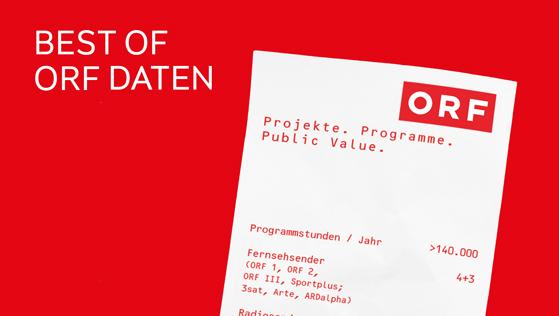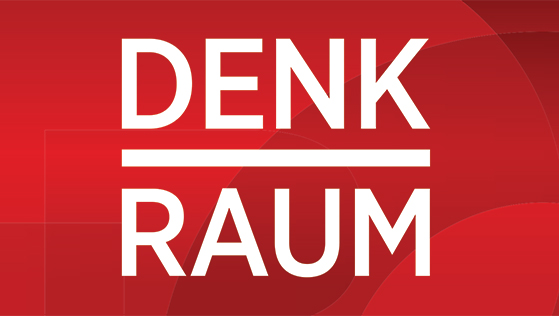Hier finden Sie Neuigkeiten und Informationen aus Österreich, Europa und der Welt zu aktuellen Entwicklungen unter anderem in den Bereichen »Public Value«, »öffentlich-rechtliche Medien«, sowie »Qualitätsjournalismus«.
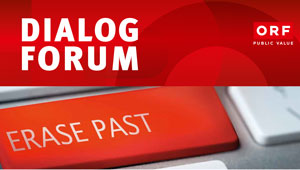
Macht das digitale Gedächtnis Erinnerung überflüssig?
Vergangenheit lebt nur, wenn wir uns erinnern. Wie aber funktioniert das Zusammenspiel von Wahrnehmen, Vergessen und Erinnern in einer Zeit, in der alles digital abgespeichert wird? Ist Digitalisierung für das "kulturelle Gedächtnis" europäischer Identität eine neue faszinierende Chance oder doch eine Gefahr? Wie reagieren Kunst- und Kulturschaffende, die Medien, insbesondere der öffentlich-rechtliche Rundfunk?
Ein Dialogforum in Kooperation mit dem stARTcamp Wien anlässlich des Europäischen Jahres des Kulturerbes.
DISKUSSION:
Anne Aschenbrenner, Leiterin Digitales "Die Furche"
Monika Sommer, Direktorin Haus der Geschichte Österreich
Christoph Thun-Hohenstein, Generaldirektor "Österreichisches Museum für angewandte Kunst (MAK)"
Martin Traxl, Hauptabteilungsleiter ORF-TV-Kultur
MODERATION:
Klaus Unterberger, ORF Public Value
Donnerstag, 14. Juni 2018, 19.00 Uhr
ORF RadioKulturhaus, Studio 3
Argentinierstraße 30a, 1040 Wien
Diese Veranstaltung richtet sich an all jene, die an diesem Tag auf Fußball verzichten möchten.
Anmeldungen an:
praesentation@orf.at oder telefonisch unter
(01) 878 78-14384
Das ORF-DialogForum wird auf zukunft.ORF.at live gestreamt.
Es wird darauf hingewiesen, dass am Veranstaltungsort Fotos und/oder Videos angefertigt werden und diese im Zusammenhang mit der Veranstaltung zeitlich, örtlich und sachlich unbeschränkt genutzt werden können.

Nach einem umfangreichen Programmangebot in Fernsehen, Radio und Online von 400 Stunden am Tag, 146.000 Stunden im Jahr - vier TV-Kanälen, zwölf Radioprogrammen, ORF.at-Netzwerk und vielem mehr ist nun das Publikum gefragt. Seit Montag, 28.Mai sind Zuseher/innen und Nutzer/innen aktiv dazu eingeladen, sich in einer dreiwöchige On- und Off-Air-Aktion zu den Angeboten des ORF äußern. Die Möglichkeiten an dieser Publikumsbefragung teilzunehmen sind vielfältig.
Lob, Anregungen und Kritik können per Telefon unter der kostenfreien Telefonnummer 0800/55 66 44, schriftlich im Internet über http://der.ORF.at oder während des Aktionszeitraums persönlich im "ORF FÜR SIE"-Bulli an den Standorten des mobilen "Unterwegs in Österreich"-Studios kommuniziert werden. Dieses tourt zwischen 28. Mai und 15. Juni in Wien, Niederösterreich und Oberösterreich.
ORF-Generaldirektor Dr. Alexander Wrabetz betont in diesem Zusammenhang die Wichtigkeit des direkten Kontaktes zum Publikum, welches im Rahmen dieser Publikumsbefragung gehört werden soll. Es ist wichtig, ein offenes Ohr für Wünsche und Anregungen zu haben und im persönlichen Kontakt mehr über die Programmvorlieben und -abneigungen zu erfahren.
Mehr hierzu:
http://der.orf.at/
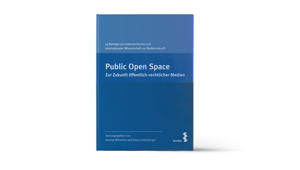
Am Montag (28.05.2018) präsentierten die Herausgeber Konrad Mitschka und Klaus Unterberger im Presseclub Concordia ihren Sammelband mit dem Namen Public Open Space, in welchem sich 55 renommierte Wissenschafter/innen unter anderem mit den Themen Public Value, dem Status Quo öffentlich-rechtlicher Medien und deren Zukunftsperspektiven auseinandersetzen.
Österreichische und internationale Wissenschafter/innen behandeln in dem Werk Schwerpunktthemen wie Glaubwürdigkeit und vertrauenswürdige Informationen, Integration, Inklusion, Diversität und Menschenrechte, aber auch Jugend und Sportberichterstattung. Der Grundtenor vieler Beiträge lautet, dass zu viele Einschränkungen die Öffentlich-Rechtlichen daran behindern, ihren gesetzlich festgelegten Auftrag zu erfüllen.
Unterstützt wurde die Buchpräsentation der Herausgeber von vier der Autoren der Beiträge. Am Podium waren FH.-Prof. Dr. Reinhard Christl (Public-Value-Beirat), Univ.-Prof.Dr. Leonhard Dobusch (Universität Innsbruck), Univ.-Prof. Dr. Thomas Steinmaurer (Universität Salzburg) und Univ.-Prof.in Dr.in Petra Herczeg (Universität Wien).
Das Buch Public Open Space ist im Facultas Universitätsverlag erschienen und steht auf auf zukunft.ORF.at zum
Download verfügbar.
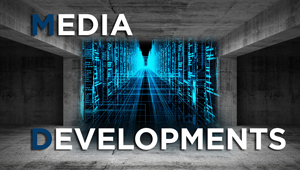
Seit heute Freitag, 25.05., ist im EU-Raum die neue Datenschutzgrundverordnung (DSGVO) in Kraft. Jene steckt den rechtlichen Rahmen ab, in welchem personenbezogene Daten natürlicher Personen gesammelt, verarbeitet und gespeichert werden dürfen. Dies betrifft nun alle Unternehmen die Daten verarbeiten, nunmehr ebenso kleine Unternehmen. Mithilfe der neuen DSGVO soll das Bewusstsein für den gewissenhaften Umgang mit Daten geschärft werden.
Der österreichische Datenschutzaktivist Max Schrems hat nun bereits am ersten Tag des Inkrafttretens der neuen DSGVO Beschwerden gegen Google, Facebook, WhatsApp und Instagram eingebracht. Die vier Beschwerden sind zeitgleich bei vier Behörden eingegangen - Facebook in Österreich, Instagram in Belgien, WhatsApp in Hamburg und Android (Google) in Frankreich.
Als Vorsitzender der Datenschutz-NGO "Noyb" kritisierte Schrems, dass den Benutzer/innen dieser Dienste keine freie Wahl gelassen worden ist, die neuen Bedingungen zu akzeptieren oder eben nicht. Teilweise wurden bei Nichtzustimmung beispielsweise Facebook Konten von Nutzer/innen gesperrt. Die DSGVO verbietet jedoch den Zwang zur Zustimmung. Die neuen Regelungen sehen vor, User/innen die freie Wahl zu lassen, ob sie einer Datennutzung zustimmen oder nicht.
Max Schrems hatte bereits im August 2014 gemeinsam mit 25.000 anderen Nutzer/innen eine Sammelklage gegen Facebook eingebracht. Der EuGh wies diese jedoch ab.
Mehr hierzu:
https://derstandard.at/2000080387748/Max-Schrems-bringt-Beschwerden-gegen-Google-Facebook-WhatsApp-und-Co
https://www.wienerzeitung.at/dossiers/datenschutz/966836_Kritik-an-Friss-oder-Stirb-Bestimmungen.html
https://diepresse.com/home/karriere/karrierenews/5364876/DSGVO_Countdown-zum-25-Mai
https://derstandard.at/2000072972831/EuGH-erteilt-Schrems-Sammelklage-gegen-Facebook-eine-Absage

Wie die in Teilen Europas durchgeführte Studie des amerikanischen Forschungszentrums Pew Research Center zeigt, vertrauen Europäer/innen mit populistischen Ansichten den Medien in der Regel wenig. Jene Personen seien auch weitaus kritischer bei der Berichterstattung über Schlüsselthemen wie Migration, Wirtschaft und Kriminalität.
Befragt wurden mehr als 16.000 Personen in acht westeuropäischen Ländern, darunter Deutschland, Frankreich und Schweden. Die Studie ergab unter anderem, dass nur 47% der populistischen Sympathisanten in Deutschland den traditionellen Nachrichtenmedien vertrauen, verglichen mit 78% der Nicht-Populisten. Dies entspricht einem Unterschied von 31%. In Frankreich, Spanien, Schweden und Dänemark wurden ebenso Unterschiede von über 20 Prozenten festgestellt.
Die Studie beleuchtet ebenso gesellschaftliche Veränderungen. So fällt auf, dass nicht mehr die Trennlinie zwischen Rechts und Links die Einstellung zu Medien in den Ländern prägt, sondern die nicht oder sehr wohl vorhandenen populistischen Ansichten bei der Bevölkerung. Österreich wurde in der Studie nicht untersucht.
Mehr:
https://www.theguardian.com/politics/2018/may/14/populist-voters-less-likely-to-trust-news-media-european-survey-finds
https://www.courthousenews.com/populism-not-politics-dictates-mistrust-of-media-study-finds/
http://www.dw.com/de/studie-populismus-und-medienschelte-sind-ein-team/a-43739927
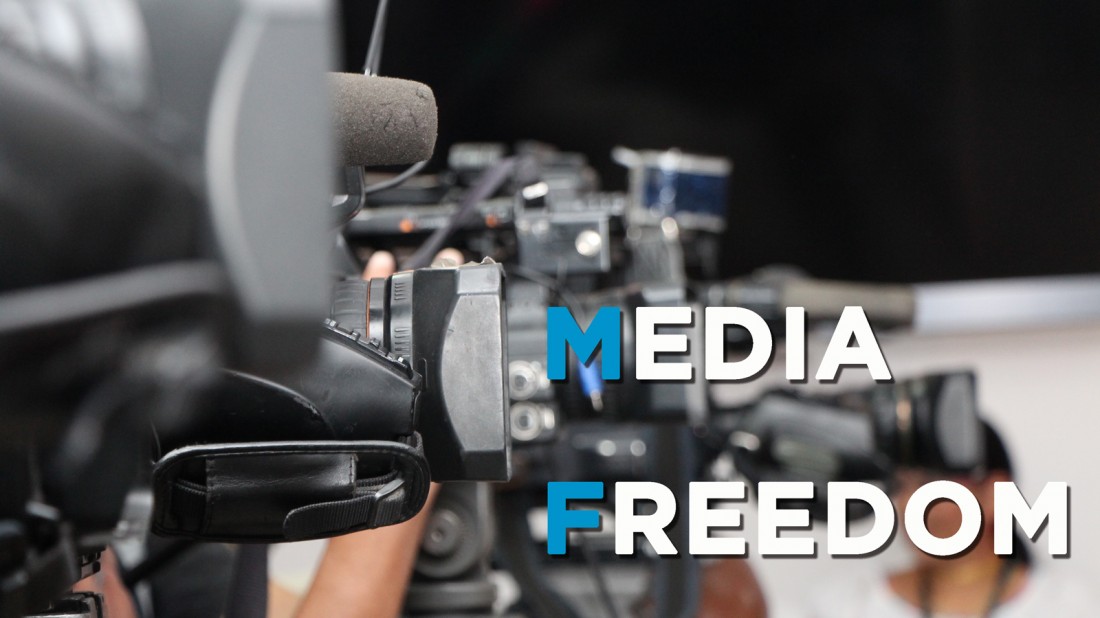
Unabhängige (öffentlich-rechtliche) Medien spielen eine entscheidende Rolle in einer funktionierenden Demokratie. Jedoch hat sich angesichts der weltweit abnehmenden Medienfreiheit die Fähigkeit der öffentlich-rechtlichen Medien zur Erfüllung ihres Auftrages ebenso verändert.
Von stark auftretenden Regierungen bis hin zu populistischen Bewegungen gegen die Presse und pluralistische Medien zeichnet der kürzlich veröffentlichte World Press Freedom Index von Reporter ohne Grenzen (RSF) ein beunruhigendes Bild der globalen Medienfreiheit. Ebenso ist nun die schwierige Stellung von Journalistinnen und Journalisten hinsichtlich ihrer Glaubwürdigkeit ein aktuelles Thema.
Der politische Druck auf Medien ist zweifellos gegeben: Donald Trumps "media bashing", Polens Regierung und ihr Einfluss auf die Unabhängigkeit des öffentlich-rechtlichen Senders TVN, sowie auch die Wiederwahl von Premierminister Orbán wird in Ungarn wenig dazu beitragen, die redaktionelle Unabhängigkeit des umstrukturierten öffentlich-rechtlichen Rundfunks des Landes zu verbessern.
Ungeachtet vieler Herausforderungen spielt der öffentlich-rechtliche Rundfunk immer noch eine entscheidende Rolle bei der Aufrechterhaltung der Demokratie und der Meinungsfreiheit. Auch wenn der Sektor - vor allem in Europa - unter einer Vielzahl von Bedrohungen leidet. Nichtsdestotrotz konnte Österreich seinen 11. Platz im Ranking des World Press Freedom Index im Vergleich zum Vorjahr halten.
Mehr:
https://www.publicmediaalliance.org/public-media-decline-media-freedom/
https://rsf.org/en/ranking/ (World Press Freedom Index)
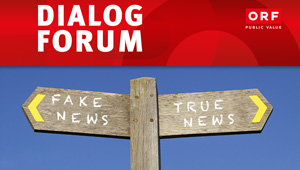
Wohin entwickelt sich unsere Gesellschaft?
Werden wir mehr Demokratie oder mehr Populismus erleben?
Mehr Egokultur oder mehr Solidarität?
Werden Biedermänner und Brandstifterinnen unsere Zukunft bestimmen?
Fake News oder Real News?
Wer macht einen Unterschied? In Politik, Wirtschaft und Kultur, in den Medien, in der Gesellschaft?
Im ORF-DialogForum diskutieren:
Ingo Schulze, Schriftsteller
Martin Schenk, "Die Armutskonferenz"
Reinhard Christl, Public-Value-Beirat der KommAustria
Robert Arndt, ARD-Generalsekretariat
Hildegard Aichberger, ORF "Mutter Erde"
MODERATION:
Klaus Unterberger, ORF Public Value
Mittwoch, 16. Mai 2018, 19.30 Uhr
ORF RadioKulturhaus, Studio 3
Argentinierstraße 30a, 1040 Wien
Anmeldungen an:
praesentation@orf.at oder telefonisch unter
(01) 878 78-14384
Das ORF-DialogForum wird auf zukunft.ORF.at live gestreamt und in ORF III zeitversetzt gesendet.

In seiner Keynote "Europa strauchelt - was machen die Medien?", anlässlich der Deutsch-Französischen Medienfachtagung des Gustav-Stresemann-Instituts in Bonn, bekräftigte SR-Intendant Professor Thomas Kleist seine Forderung nach der Schaffung eines europäischen Kommunikationsraumes.
"Wenn Deutsche und Franzosen in der Lage sind zusammen Großraum-Passagier-Flugzeuge zu konstruieren und zu bauen, warum sollen wir es dann nicht auch schaffen, eine gemeinsame Kommunikationsinfrastruktur zu stemmen, die für unser künftiges Zusammenleben und das weitere Zusammenwachsen Europas von essentieller Bedeutung sein wird."
Mehr:
Artikel und Keynote auf SR.de
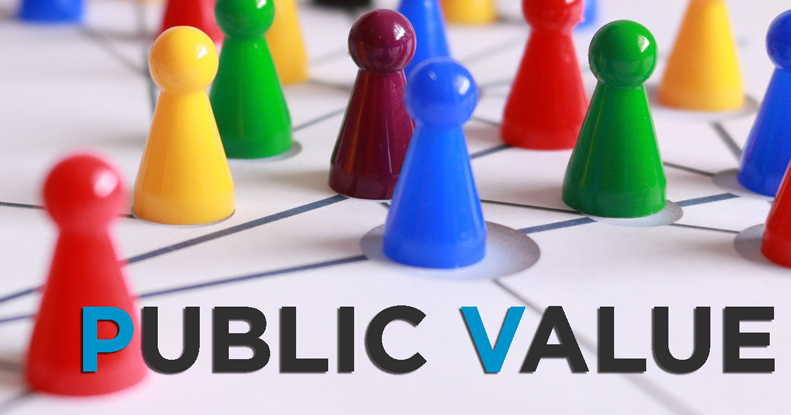
Die rbb-Intendantin Patricia Schlesinger hat im ZAPP-Interview (ARD) eine "Public Value"-Kampagne angekündigt. Die ARD werde "den Wert des öffentlich-rechtlichen Rundfunks in den Mittelpunkt stellen - hoffentlich auch so stark, dass niemand daran vorbeikommt". Auch Stefan Raue, Intendant des Deutschlandradios fordert:"Wir müssen raus aus unseren Hochhäusern", Für seine drei Hörfunkprogramme fährt er gerade eine Image-Kampagne ("Unabhängig. Unverzichtbar. Für 50 Cent Ihres Rundfunkbeitrags.") Raue will auch mehr Dialog und mahnt, man habe unterschätzt welche Qualität das Misstrauen uns gegenüber hat.
Mehr:
Zum Artikel und ZAPP-Betrag von Daniel Bouhs

Nach einem mehrjährigen Rechtsstreit haben Vodafone und das ZDF ihre Differenzen beiseitegelegt und sind eine langfristige Partnerschaft eingegangen. Durch diese Zusammenarbeit soll die Verbreitung und Nutzung der ZDF-Inhalte über die Vodafone-TV-Plattformen für die Nutzer angenehmer und ansprechender werden.
Die neue Partnerschaft beinhaltet, dass ZDFinfo bald auch bei Vodafone in HD zu sehen sein wird und dass Vodafone-Kunden in Zukunft Inhalte der ZDFmediathek nach der Ausstrahlung direkt auf den unterschiedlichen Geräten wie Set-Top-Boxen und Smartphones abrufen und ansehen können.
Für ZDF-Intendant Dr. Thomas Bellut ist diese Zusammenarbeit ein wichtiger Schritt in die digitale Zukunft, denn sie sei "vor allem auch eine gute Nachricht für das Publikum."
"Gemeinsam konzentrieren wir uns darauf, den Zuschauern ein einzigartiges Fernseherlebnis mit hochwertigen TV-Angeboten zu bieten, die jederzeit und überall abrufbar sind.", ist sich auch Vodafone Deutschland-CEO Hannes Ametsreiter überzeugt.
Mehr:
https://presseportal.zdf.de/pressemitteilung/mitteilung/zdf-und-vodafone-beenden-rechtsstreit-und-schliessen-partnerschaft/

The European Council's "Recommendation on media pluralism and transparency of media ownership" shows that Public Service Media (PSM) is crucial in obtaining media pluralism and diversity of media content.
The Recommendation document identifies reasons to establish an adequate policy framework for a media environment that is transparent, pluralist and stimulates participation.
Dr. Michael Wagner, Head of Media & Communications Law, particularly welcomes the qualification of PSM as an institutional guarantee of media pluralism.
More:
https://www.ebu.ch/news/2018/03/council-of-europe-identifies-psm-as-key-in-counterbalancing-media-concentration
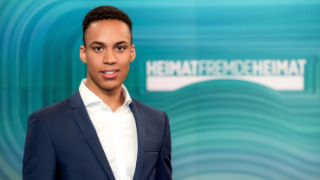
Stefan Lenglinger, 25, ist neuer Moderator des ORF-Magazins "Heimat Fremde Heimat". Er tritt damit die Nachfolge von Lakis Jordanopoulos an, der mit April 2018 in den Ruhestand trat. Lenglinger moderiert die Sendung erstmals am 22. April, er präsentiert "Heimat Fremde Heimat" künftig alternierend mit Silvana Meixner.
Stefan Lenglinger wurde 1993 in Wien geboren. Sein Vater stammt aus Österreich, seine Mutter ursprünglich aus Ghana. Lenglingers Identität ist bis heute geprägt durch das internationale Umfeld, in dem er aufwuchs, Englisch ist neben Deutsch seine zweite Muttersprache. 2012 begann er das Studium Journalismus und Medienmanagement an der FH der Wirtschaftskammer in Wien, nach dem Bachelor ein Masterstudium (Internationale Entwicklung) an der Universität Wien. 2015 absolvierte er ein viermonatiges Praktikum für die ORF-Sendung "Bürgeranwalt". Seither ist Stefan Lenglinger in der Redaktion als freier Mitarbeiter tätig. 2016 war er Teil des ORF-"Sommergespräche"-Teams. Zudem berichtete er für die Sendung "Report" und arbeitete im Korrespondentenbüro in den USA in Washington.
Stefan Lenglinger: "Ich möchte mich in meiner Arbeit weiterhin der politischen und kulturellen Realität der österreichischen Gesellschaft und den internationalen Verhältnissen, die sich auf diese auswirken, widmen. Der ORF und insbesondere auch die Sendung 'Heimat Fremde Heimat' ist in diesem Bereich eine wichtige Plattform für Berichterstattung und öffentliche Diskussion. Ich freue mich, in Zukunft auch als Moderator einen Beitrag dazu leisten zu können."
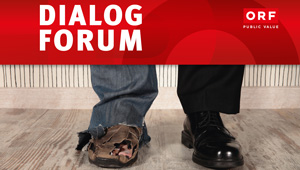
Bitcoin, Börsenkurse und die unsichtbare Hand des Marktes: Die Welt der Wirtschaft lebt von Versprechen auf Wohlstand, Gewinn und Wachstum. Doch gibt es Wirtschaft als unbestrittenen Sachzwang überhaupt? Wer gewinnt, wer verliert? Was hat Wirtschaft mit sozialer Verantwortung und Gemeinwohl zu tun? Gibt es Alternativen zur Wachstumslogik? Ist Wirtschaft gerecht? Welches Bild vermitteln Medien von Wirtschaft?
Ein DialogForum mit dem Europäischen Forum Alpbach, dem Gemeinwohlökonomie Forschungsverein und der Wiener Zeitung.
Es dikutieren:
KEYNOTE:
Kate Raworth, "Doughnut Economics - Seven ways to think like a 21st Century Economist"
DISKUSSION:
Univ.-Prof. Dr. Leonhard Dobusch, Wirtschaftswissenschafter, Universität Innsbruck
Mag. Christian Felber, Gemeinwohlökonomie
Dr. Monika Köppl-Turyna, Agenda Austria
Katharina Schrimpf, Gesellschaft für plurale Ökonomik
Mag. Werner Wutscher, New Venture Scouting
MODERATION:
Klaus Unterberger, ORF Public Value
Sonntag, 22. April 2018, 13.00 Uhr
ORF RadioKulturhaus, Großer Sendesaal
Argentinierstraße 30a, 1040 Wien
Anmeldungen an: praesentation@orf.at oder telefonisch unter (01) 878 78-14384
Das ORF-DialogForum wird auf zukunft.ORF.at live gestreamt und in ORF III zeitversetzt gesendet.

Laut dem neuen EBU-Bericht "Trust in Media 2018" vertrauen wieder mehr Menschen Rundfunk- und Printmedien, während gleichzeitig das Zutrauen in das Internet, sowie Social Media stetig sinkt.
Demnach liegt das Vertrauen in Radio und Fernsehen ähnlich wie bereits 2017 bei 59 %. Printmedien konnten im Vergleich zu 2016 leichte Vertrauenszugewinne verzeichnen, sodass ihnen nun 47% der EU-Bürger vertrauen. Zeitgleich ist das Vertrauen in neue Medien rückläufig, denn nur 34% vertrauen dem Internet bzw. 20% Social Media.
Aus dem EBU-Bericht geht weiter hervor, dass das Vertrauen in die Medien eng mit der Pressefreiheit zusammenhängt, denn je höher in einem Land die Vertrauenswerte in Rundfunkmedien sind, desto höher ist normalerweise auch der Grad der Pressefreiheit.
Dennoch ergeben sich geografisch auch Unterschiede. In Osteuropa scheint der Vertrauen in das Internet und Social Media höher zu sein, während in den nord- und nordwesteuropäischen Ländern traditionellen Medien am stärksten vertraut wird.
Mehr:
https://www.ebu.ch/news/2018/02/trust-in-traditional-media-increases-across-europe

UA:PBC, die ukrainische öffentlich-rechtliche Rundfunkstation, steht wegen fehlender Finanzierungsmittel am Rande des Abgrunds und könnte bereits Ende April zusperren müssen.
Bis jetzt habe UA:PBC nur die Hälfte des ihm laut Gesetz zustehenden Budgets erhalten, gaben UA:PBC-Manager bei einer Europaratskonferenz in Kiew bekannt. Es sei dringend notwendig, eine adäquate und nachhaltige Finanzierung zu finden, betonten sie weiter.
Der öffentlich-rechtliche Sender wurde in seiner jetzigen Form und unter dem heutigen Namen erst im Jänner 2017 gegründet. Zur Zeit steht die Rundfunkplattform auch abseits der Finanzierungsprobleme vor einigen Herausforderungen, da die 28 regionalen Einheiten restrukturiert und gestärkt werden sollen, Personal eingespart werden muss und der Digitalisierungsprozess vorangetrieben werden soll.
"Wir sind sehr beunruhigt, dass das Fehlen einer nachhaltigen Finanzierung für UA:PBC Wachstum und Entwicklung dieser wichtigen demokratischen Institution unterdrücken wird und zur Zeit bedroht diese sogar seine Existenz. Das könnte die EU-Beitrittsverhandlungen der Ukraine, sowie weitere finanzielle Hilfsmittel aus der EU gefährden.", kommentierte auch Radka Betcheva, Leiterin der EBU-Abteilung Mitgliederbeziehungen (Zentral- und Osteuropa), die Lage besorgt.
Mehr:
https://www.ebu.ch/contents/news/2018/03/uapbc-under-threat-of-closure.html

Die Schweizer haben bei der "No-Billlag"-Volksabstimmung über die Abschaffung der Rundfunkgebühren mit über 70% klar gegen die Initiative votiert und somit die Finanzierungsgrundlage des Schweiz öffentlich-rechtlichen Rundfunks, der SRG SSR, gesichert.
"Wir sind hocherfreut, dass die Öffentlichkeit in so hohem Ausmaß für die Beibehaltung der Rundfunkgebühren in der Schweiz gestimmt hat. Das ist eine wirkliche Vertrauenswahl in öffentlich-rechtliche Medien und deren kritische Rolle in der Bereicherung des kulturellen, sozialen, wirtschaftlichen und demokratischen Lebens er Gesellschaft.", kommentierte der EBU-Generaldirektor Noel Curran das Ergebnis.
Die "No Billag"-Initiative war Ende 2015 ins Leben gerufen worden und forderte neben der Abschaffung der Rundfunkgebühren auch das Ende der staatlichen Subventionierung von Rundfunkstationen und eine reine Versteigerung der Rundfunklizenzen. Ein "Ja" der Schweizer Bevölkerung bei der Abstimmung hätte wohl das Aus der SRG, sowie weiterer lokaler und regionaler Rundfunkstationen, die ohne Subventionierung nicht überleben könnten, bedeutet.
https://www.ebu.ch/news/2018/03/swiss-vote-in-favour-of-public-service-media
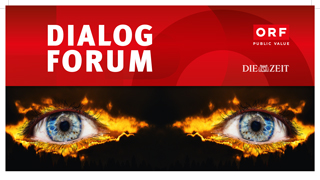
Keine Grenzen. Keine Geheimnisse. Datenströme als neue Währung.
Automatisierte Gesichtserkennung. Totale Überwachung.
Fake News. Filter Bubble. Clickbait. Social Bots.
Wohin führen uns digitale Technologien?
Wie funktioniert der globale Datenkapitalismus?
Wie kann sich die Demokratie in der digitalen Welt von Big Data behaupten?
Ein DialogForum in Kooperation mit "Die Zeit":
KEYNOTE:
Viktor Mayer-Schönberger, Professor am Oxford Internet Institute und Autor des Buches "Das Digital. Markt, Wertschöpfung und Gerechtigkeit im Datenkapitalismus"
DISKUSSION:
Barbara Thomaß, Professorin am Institut für Medienwissenschaft, Ruhr-Universität Bochum
Joachim Riedl, "Die Zeit"
Lara Hubmann, Studentin, FH St. Pölten
Stefan Kappacher, #doublecheck - Das Ö1-Medienmagazin
MODERATION:
Klaus Unterberger, ORF Public Value
Montag, 19. März 2018, 19.00 Uhr
ORF Radiokulturhaus, Großer Sendesaal
Argentinierstraße 30a, 1040 Wien
Anmeldungen an: praesentation@orf.at oder telefonisch unter (01) 87878-14384
Das ORF DialogForum wird auf zukunft.ORF.at live gestreamt und auf ORF III zeitversetzt gesendet.
 Macht das digitale Gedächtnis Erinnerung überflüssig?
Macht das digitale Gedächtnis Erinnerung überflüssig?
 Am Montag (28.05.2018) präsentierten die Herausgeber Konrad Mitschka und Klaus Unterberger im Presseclub Concordia ihren Sammelband mit dem Namen Public Open Space, in welchem sich 55 renommierte Wissenschafter/innen unter anderem mit den Themen Public Value, dem Status Quo öffentlich-rechtlicher Medien und deren Zukunftsperspektiven auseinandersetzen.
Am Montag (28.05.2018) präsentierten die Herausgeber Konrad Mitschka und Klaus Unterberger im Presseclub Concordia ihren Sammelband mit dem Namen Public Open Space, in welchem sich 55 renommierte Wissenschafter/innen unter anderem mit den Themen Public Value, dem Status Quo öffentlich-rechtlicher Medien und deren Zukunftsperspektiven auseinandersetzen. Seit heute Freitag, 25.05., ist im EU-Raum die neue Datenschutzgrundverordnung (DSGVO) in Kraft. Jene steckt den rechtlichen Rahmen ab, in welchem personenbezogene Daten natürlicher Personen gesammelt, verarbeitet und gespeichert werden dürfen. Dies betrifft nun alle Unternehmen die Daten verarbeiten, nunmehr ebenso kleine Unternehmen. Mithilfe der neuen DSGVO soll das Bewusstsein für den gewissenhaften Umgang mit Daten geschärft werden.
Seit heute Freitag, 25.05., ist im EU-Raum die neue Datenschutzgrundverordnung (DSGVO) in Kraft. Jene steckt den rechtlichen Rahmen ab, in welchem personenbezogene Daten natürlicher Personen gesammelt, verarbeitet und gespeichert werden dürfen. Dies betrifft nun alle Unternehmen die Daten verarbeiten, nunmehr ebenso kleine Unternehmen. Mithilfe der neuen DSGVO soll das Bewusstsein für den gewissenhaften Umgang mit Daten geschärft werden. Wie die in Teilen Europas durchgeführte Studie des amerikanischen Forschungszentrums Pew Research Center zeigt, vertrauen Europäer/innen mit populistischen Ansichten den Medien in der Regel wenig. Jene Personen seien auch weitaus kritischer bei der Berichterstattung über Schlüsselthemen wie Migration, Wirtschaft und Kriminalität.
Wie die in Teilen Europas durchgeführte Studie des amerikanischen Forschungszentrums Pew Research Center zeigt, vertrauen Europäer/innen mit populistischen Ansichten den Medien in der Regel wenig. Jene Personen seien auch weitaus kritischer bei der Berichterstattung über Schlüsselthemen wie Migration, Wirtschaft und Kriminalität.
 Unabhängige (öffentlich-rechtliche) Medien spielen eine entscheidende Rolle in einer funktionierenden Demokratie. Jedoch hat sich angesichts der weltweit abnehmenden Medienfreiheit die Fähigkeit der öffentlich-rechtlichen Medien zur Erfüllung ihres Auftrages ebenso verändert.
Unabhängige (öffentlich-rechtliche) Medien spielen eine entscheidende Rolle in einer funktionierenden Demokratie. Jedoch hat sich angesichts der weltweit abnehmenden Medienfreiheit die Fähigkeit der öffentlich-rechtlichen Medien zur Erfüllung ihres Auftrages ebenso verändert. "Cable Europe", der Handelsverband der führenden Breitband-Kabelfernsehbetreiber in der EU, begrüßt die in den letzten Tagen erzielte politische Einigung über die Revision des audiovisuellen Regelwerks der EU. Die AVMD Richtlinie stellt die Reihe gemeinsamer Regeln für den europäischen Fernsehmarkt dar.
"Cable Europe", der Handelsverband der führenden Breitband-Kabelfernsehbetreiber in der EU, begrüßt die in den letzten Tagen erzielte politische Einigung über die Revision des audiovisuellen Regelwerks der EU. Die AVMD Richtlinie stellt die Reihe gemeinsamer Regeln für den europäischen Fernsehmarkt dar. Wohin entwickelt sich unsere Gesellschaft?
Wohin entwickelt sich unsere Gesellschaft? In seiner Keynote "Europa strauchelt - was machen die Medien?", anlässlich der Deutsch-Französischen Medienfachtagung des Gustav-Stresemann-Instituts in Bonn, bekräftigte SR-Intendant Professor Thomas Kleist seine Forderung nach der Schaffung eines europäischen Kommunikationsraumes.
In seiner Keynote "Europa strauchelt - was machen die Medien?", anlässlich der Deutsch-Französischen Medienfachtagung des Gustav-Stresemann-Instituts in Bonn, bekräftigte SR-Intendant Professor Thomas Kleist seine Forderung nach der Schaffung eines europäischen Kommunikationsraumes. Die rbb-Intendantin Patricia Schlesinger hat im ZAPP-Interview (ARD) eine "Public Value"-Kampagne angekündigt. Die ARD werde "den Wert des öffentlich-rechtlichen Rundfunks in den Mittelpunkt stellen - hoffentlich auch so stark, dass niemand daran vorbeikommt". Auch Stefan Raue, Intendant des Deutschlandradios fordert:"Wir müssen raus aus unseren Hochhäusern", Für seine drei Hörfunkprogramme fährt er gerade eine Image-Kampagne ("Unabhängig. Unverzichtbar. Für 50 Cent Ihres Rundfunkbeitrags.") Raue will auch mehr Dialog und mahnt, man habe unterschätzt welche Qualität das Misstrauen uns gegenüber hat.
Die rbb-Intendantin Patricia Schlesinger hat im ZAPP-Interview (ARD) eine "Public Value"-Kampagne angekündigt. Die ARD werde "den Wert des öffentlich-rechtlichen Rundfunks in den Mittelpunkt stellen - hoffentlich auch so stark, dass niemand daran vorbeikommt". Auch Stefan Raue, Intendant des Deutschlandradios fordert:"Wir müssen raus aus unseren Hochhäusern", Für seine drei Hörfunkprogramme fährt er gerade eine Image-Kampagne ("Unabhängig. Unverzichtbar. Für 50 Cent Ihres Rundfunkbeitrags.") Raue will auch mehr Dialog und mahnt, man habe unterschätzt welche Qualität das Misstrauen uns gegenüber hat. Druck von außen, interne Fehler - und keiner, der für einen unabhängigen Rundfunk kämpft: Danmarks Radio wird künftig über Steuern finanziert, das Budget um ein Fünftel geschrumpft.
Druck von außen, interne Fehler - und keiner, der für einen unabhängigen Rundfunk kämpft: Danmarks Radio wird künftig über Steuern finanziert, das Budget um ein Fünftel geschrumpft.
 Nach einem mehrjährigen Rechtsstreit haben Vodafone und das ZDF ihre Differenzen beiseitegelegt und sind eine langfristige Partnerschaft eingegangen. Durch diese Zusammenarbeit soll die Verbreitung und Nutzung der ZDF-Inhalte über die Vodafone-TV-Plattformen für die Nutzer angenehmer und ansprechender werden.
Nach einem mehrjährigen Rechtsstreit haben Vodafone und das ZDF ihre Differenzen beiseitegelegt und sind eine langfristige Partnerschaft eingegangen. Durch diese Zusammenarbeit soll die Verbreitung und Nutzung der ZDF-Inhalte über die Vodafone-TV-Plattformen für die Nutzer angenehmer und ansprechender werden. The European Council's "Recommendation on media pluralism and transparency of media ownership" shows that Public Service Media (PSM) is crucial in obtaining media pluralism and diversity of media content.
The European Council's "Recommendation on media pluralism and transparency of media ownership" shows that Public Service Media (PSM) is crucial in obtaining media pluralism and diversity of media content. Stefan Lenglinger, 25, ist neuer Moderator des ORF-Magazins "Heimat Fremde Heimat". Er tritt damit die Nachfolge von Lakis Jordanopoulos an, der mit April 2018 in den Ruhestand trat. Lenglinger moderiert die Sendung erstmals am 22. April, er präsentiert "Heimat Fremde Heimat" künftig alternierend mit Silvana Meixner.
Stefan Lenglinger, 25, ist neuer Moderator des ORF-Magazins "Heimat Fremde Heimat". Er tritt damit die Nachfolge von Lakis Jordanopoulos an, der mit April 2018 in den Ruhestand trat. Lenglinger moderiert die Sendung erstmals am 22. April, er präsentiert "Heimat Fremde Heimat" künftig alternierend mit Silvana Meixner. Bitcoin, Börsenkurse und die unsichtbare Hand des Marktes: Die Welt der Wirtschaft lebt von Versprechen auf Wohlstand, Gewinn und Wachstum. Doch gibt es Wirtschaft als unbestrittenen Sachzwang überhaupt? Wer gewinnt, wer verliert? Was hat Wirtschaft mit sozialer Verantwortung und Gemeinwohl zu tun? Gibt es Alternativen zur Wachstumslogik? Ist Wirtschaft gerecht? Welches Bild vermitteln Medien von Wirtschaft?
Bitcoin, Börsenkurse und die unsichtbare Hand des Marktes: Die Welt der Wirtschaft lebt von Versprechen auf Wohlstand, Gewinn und Wachstum. Doch gibt es Wirtschaft als unbestrittenen Sachzwang überhaupt? Wer gewinnt, wer verliert? Was hat Wirtschaft mit sozialer Verantwortung und Gemeinwohl zu tun? Gibt es Alternativen zur Wachstumslogik? Ist Wirtschaft gerecht? Welches Bild vermitteln Medien von Wirtschaft?
 UA:PBC, die ukrainische öffentlich-rechtliche Rundfunkstation, steht wegen fehlender Finanzierungsmittel am Rande des Abgrunds und könnte bereits Ende April zusperren müssen.
UA:PBC, die ukrainische öffentlich-rechtliche Rundfunkstation, steht wegen fehlender Finanzierungsmittel am Rande des Abgrunds und könnte bereits Ende April zusperren müssen. Die Schweizer haben bei der "No-Billlag"-Volksabstimmung über die Abschaffung der Rundfunkgebühren mit über 70% klar gegen die Initiative votiert und somit die Finanzierungsgrundlage des Schweiz öffentlich-rechtlichen Rundfunks, der SRG SSR, gesichert.
Die Schweizer haben bei der "No-Billlag"-Volksabstimmung über die Abschaffung der Rundfunkgebühren mit über 70% klar gegen die Initiative votiert und somit die Finanzierungsgrundlage des Schweiz öffentlich-rechtlichen Rundfunks, der SRG SSR, gesichert.




